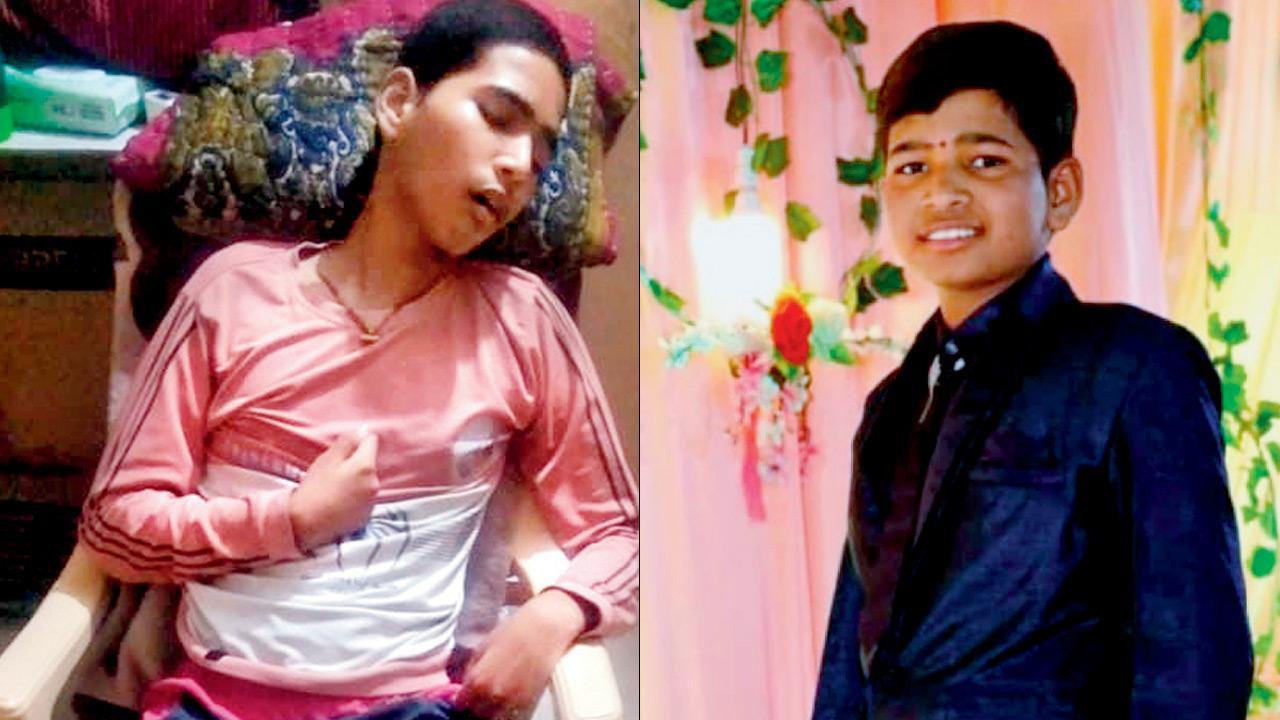Parents of SSPE (disease that affects the brain) children plead for aid or reseach centre

Tanesh Belkar, 15, before (right) and after contracting SSPE. Photos reproduced with the parents’ permission
Even as many countries globally recognise Subacute Sclerosing Panencephalitis (SSPE) as a rare disease, it remains a serious health concern in India, where it is yet to be included in the list of rare diseases.
Responding to the desperate pleas of parents of 25 children suffering from SSPE—who recently staged a protest outside the Mantralaya demanding financial aid for treatment and the establishment of a research centre—Chief Minister Devendra Fadnavis has assured them that appropriate steps will be taken.
Elaborating on the measures, Health Minister Prakashrao Abitkar said, “We have taken cognisance of the matter. The chief minister will propose setting up a research lab to the Union government. Also, we will push for SSPE to be included in the list of rare diseases. Once that happens, one of the civic hospitals will be designated to treat SSPE patients. Besides, we are also working out the parents’ demand for financial aid for treatment.”
The sufferings
Speaking to mid-day, Mangilal Hukamichand Jain, father of 22-year-old SSPE patient Ritik Jain, said, “After protesting for two or three hours, we were called inside, and Health Minister Prakashrao Abitkar met us. He then helped us secure an appointment with the chief minister.”
Mahadu Belkar, a resident of Panvel and father of 15-year-old Tanesh Belkar, shared, “My son suddenly fell ill when he was 13. We took him to Wadia Hospital after our family doctor couldn’t diagnose the illness. There, after testing his spinal fluid, he was diagnosed with SSPE. Doctors told us there is no cure and only prescribed sleeping pills.”
Since then, Tanesh’s health has continued to deteriorate, his parents said. Fourteen-year-old Shailesh Rajbhar’s story mirrors the same ordeal. “He suddenly started forgetting things three years ago, and then his behaviour began changing. After several doctor visits, he was diagnosed with SSPE in 2022 when he was just 11,” said his father, Subash Rajbhar.
Parents’ demands
“We have spent nearly Rs 17 lakh over the past two years on Tanesh’s treatment. We’re now facing a severe financial crisis and are struggling to manage. We’re requesting the government for financial assistance; we desperately need help,” said Belkar.
Seconding him, Jain added that parents have requested the chief minister to set up dedicated research laboratories and R&D centres to develop medication for SSPE, so that at least newly diagnosed cases stand a chance at better treatment.
‘No or incorrect vaccination’
“At present, the only cause of SSPE is no or incorrect measles vaccination. Sometimes the vaccine isn’t administered properly, sometimes there are logistical issues like cold-chain failures, and sometimes it's missed altogether, especially among lower-income groups,” explained Dr Sangeeta Rawat, dean of KEM Hospital.
However, parents claimed that vaccinations had been administered on time. “Ritik was given the measles vaccine before he turned one, around the age of eight or nine months,” said Jain.
Symptoms of SSPE
>> Cognitive decline leading to difficulty in learning and understanding
>> Personality shifts and irritability
>> Seizures and muscle jerks resembling epilepsy
>> Motor impairment leading to loss of consciousness, coma, and eventually death
SSPE cases in India
As per the Series of Clinical and Medical Case Reports, India sees an annual incidence of 21 cases per million people
>> Cause: Incorrect or missed measles vaccine is the only known cause of SSPE
>> Medication: No country has yet developed a cure
How does one contract SSPE?
SSPE is contracted through a persistent measles virus infection, often years after the initial measles infection. The measles virus can enter the brain during the infection, and sometimes just remains there, reactivating much later and causing SSPE.
 Subscribe today by clicking the link and stay updated with the latest news!" Click here!
Subscribe today by clicking the link and stay updated with the latest news!" Click here!








